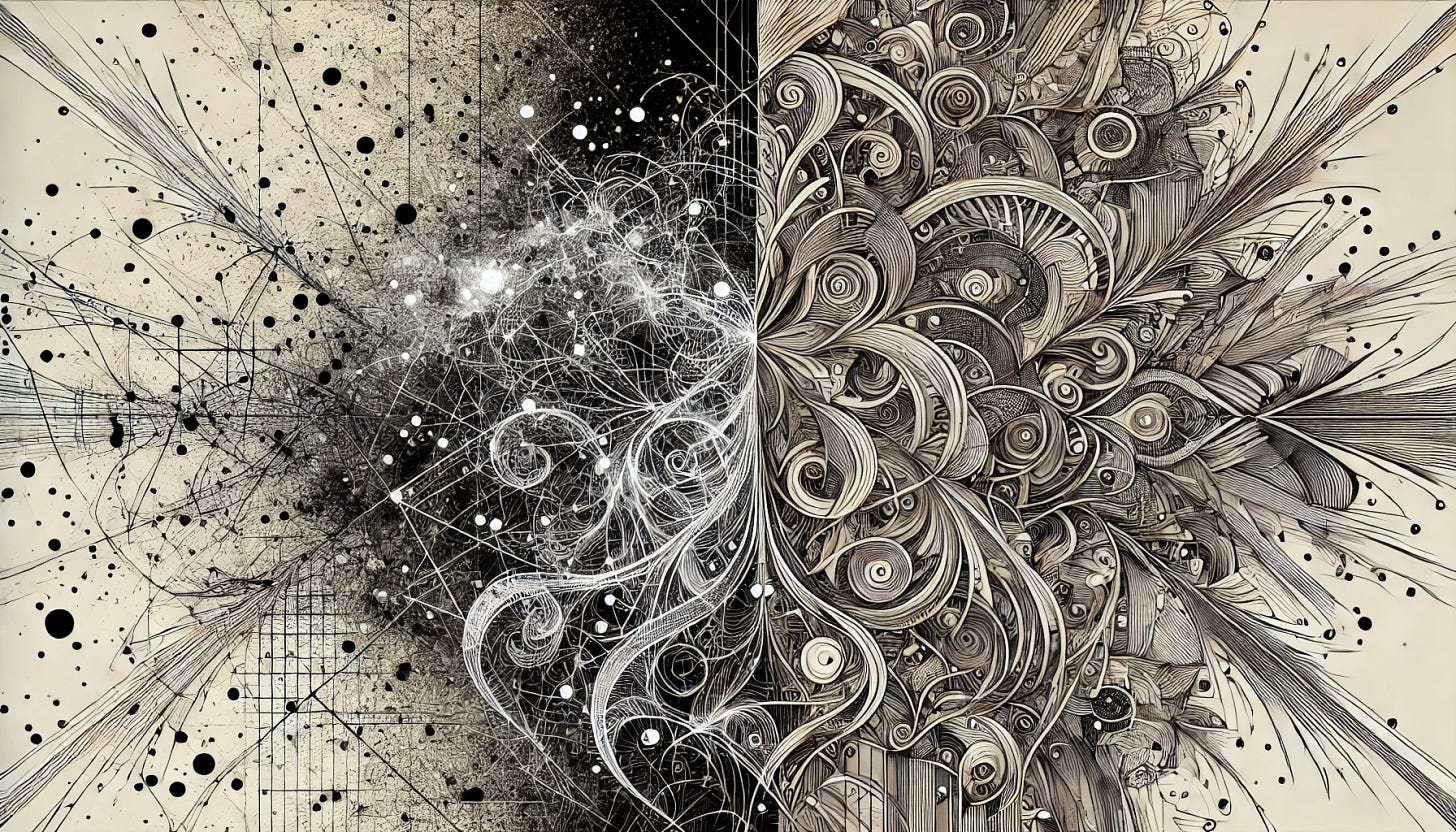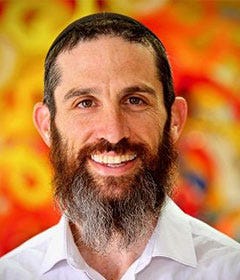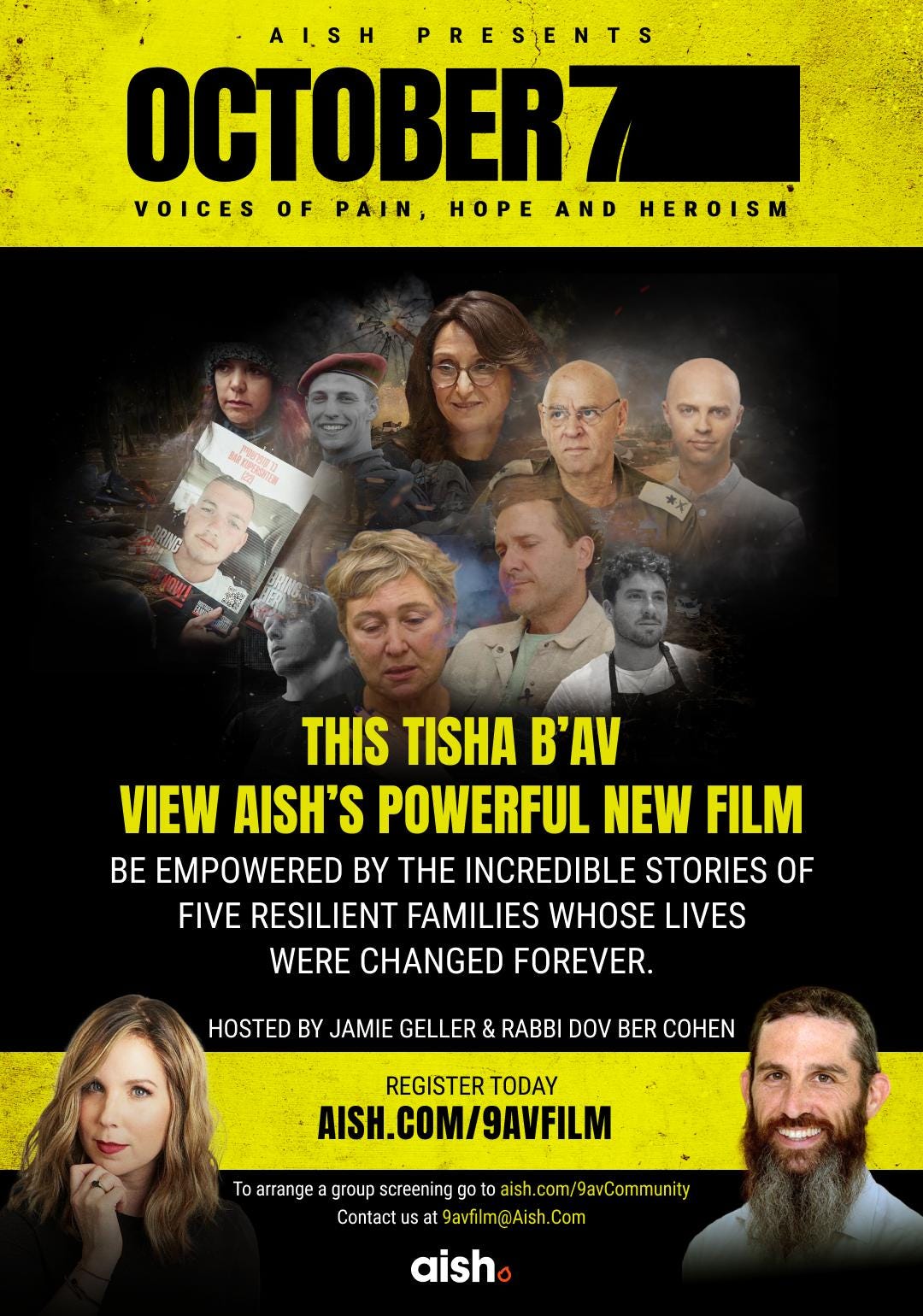Peace in the Process
How to juggle the many balls of life
Welcome to something new at XL. In an effort to share with our readers other voices of contemporary Jewish thinkers and teachers, and to also bring XL to a broader audience, I have invited guest contributors to author their own installments in our Life Advice series.
Our first contributor is my friend, Rabbi Dov Ber Cohen, former Buddhist monk and still a teacher of martial arts and mindfulness (longer bio below).
We have some very exciting and varied guest contributors who will be posting articles every 2-3 weeks, so keep your eye on your inbox. I hope you enjoy the exposure to other perspectives that will no doubt spice things up here at XL.
-Jack
Question:
I find myself running from one thing to the other and unable to really enjoy my life.
I’m doing things that are important (work, family time, hobbies, even Jewish stuff), but my mind is constantly racing to the next thing I’ve got to do. As a result, although I’m incredibly busy, I just don’t feel like I’m doing things well.
I don’t really see how I can cut anything out of my schedule, but how can I work on this and bring some peace into my process?
Advice from the Sages:
First of all...Welcome to life!
Life is full of challenges, difficult decisions, trial and error, successes and failures, hopes and regrets. The most important thing is how you deal with these things. They can either be seen as frustrations and burdens, or as opportunities to grow, become more resilient, patient, refined and well-thought-out. Judaism teaches that, while we should be real with the struggles and the emotions they bring, we should try to get a bigger perspective and approach life’s challenges with a positive attitude — with consciousness and calm.
So, take a few deep breaths, loosen your neck and shoulders, and let’s look into how we can go about solving this challenge in a healthy way.
The “Ramchal,” Rabbi Moshe Chaim Luzzato (1707-46), opens his famous work, the Mesilat Yesharim (Path of the Just) with the words ..
It may seem obvious, but people rarely consider this extremely powerful idea in more than a superficial way.
Let’s break it down:
The more laser-focused and clear your goal in life is, the more vitality, passion and motivation you will have. How could you not have more energy if you know what you're doing and why you are doing it? You will also more easily see what works and what doesn’t, and how it all fits into your overall goal. Athletes who wants to win an Olympic gold medal know what training to do, what food to eat and what to avoid, and exactly how much to sleep — every aspect of their lives is tuned into their goal.
So too with us. We all want to get a gold medal for being the best-version-of-ourselves. But if the different aspects of our life — health, work, relationships, hobbies, Jewish growth — are seen as separate entities with no overall goal in mind, then we are going to have to juggle them as your describe, treading water to just stay afloat. However, once we have a clear goal we are working towards, we can see how these areas are not separate things, but rather they are all different channels or means to reach our single destination.
Once you clarify, for example, that your goal is to become the most loving, kind, joyful, knowledgeable person you can be, who impacts the world around yourself in a positive way, you can start seeing how each separate area feeds into that goal.
You can always ask yourself: how is what I'm investing time, money and emotional effort into actually taking me to my goal? This simple question allows you to start seeing the areas that need work, and the things that can be dropped because they are not moving you towards your goal (and are therefore pulling you away from it).
What the Ramchal is teaching us is how foundational it is that we clarify and make sure that we live up to our values.
I recently saw an interview with Retired Major Gen Noam Tibon of the IDF. At 6:30am on October 7th, his son Amir in Kibbutz Nahal Oz called to tell him that terrorists had entered the kibbutz, and they all needed urgent help. Tibon told him to go into the safe room with his wife and two daughters, lock the door, and wait there; he’d try to be there within the hour. He jumped in his car with his wife, armed with just a pistol, and made his way down. On his way, they came across people escaping from the Nova Festival site, so they put them in their car and drove them to safety. Next, he encountered an injured policeman who needed help, and quickly thereafter joined soldiers fighting a battle…

Long (incredible, Rambo-esque) story short, he arrived at his family (thank Gd, all alive and well) several hours later having been slowed down a bit by the many lives he had to save on the way. In a powerful line he said:
“You have to make decisions in life based on your values, and when you have clear-cut values, that isn’t difficult.”
Incredible.
So applying this to your question, you don’t need to cut major things out of your schedule, you just need to prioritize what you are doing based on your values, and your ultimate vision for yourself. How important are health, children, work, Jewish growth? And, therefore, how much time, money and effort should you be investing in these things? Too little time doing exercise won’t make you strong and healthy, however too much time could take away from Jewish learning. If we spend too little time at work we may not be financially stable, but if we spend too much time there we sacrifice quality time with our family.
My wife once said to me in the sweetest way when i was spending a lot of extra time with students, “Dovvie Ber, I love how passionate you are about the Jewish people; just remember that me and the kids are also Jewish people.” My kindness and investment in one area was actually depriving those who deserved it the most.
It is your overarching vision for yourself that allows you to optimize all these moving parts. This is why the Ramchal calls it a “foundation.”
Don't forget, one of the most important things to value which we often overlook is ourselves! If we don’t look after and nurture ourselves, we won’t have the resourcefulness to take care of all our other responsibilities. As the Torah says “You shall love your fellow as yourself,” which means you need to love yourself first. Or as El Al says before take-off: put on your own oxygen mask first, then help those next to you!
So in summary, your enjoyment in life will come from having a clear goal and clear values, and then, rather than “running,” “racing,” and juggling things to just stay afloat, you can consciously choose how much time, money and effort you want to invest in each area of your life, in order to move consciously and joyfully towards your destination.
Keep your eye on the goal, take the right steps to get there, and enjoy yourself along the way!
After six years in Asia, immersed in Eastern philosophies, silent meditation retreats, extreme martial arts training, and volunteering in orphanages, Rabbi Dov Ber Cohen moved to Israel and discovered the profound wisdom of Judaism. Now a senior lecturer at Aish HaTorah in Jerusalem.
He is also the founder of Living in Tune: Authentic Jewish Mindfulness, offering online courses and retreats.
He is the author of The Enlightened Jewish Master: A Unique Guidebook to Jewish Enlightenment, which shares life lessons he’s learned along his interesting life journey, as well as a shorter volume The Essential Teachings.
He resides in Jerusalem with his talented wife and their ninja-children.
You can follow him on Instagram and YouTube.
Register now to watch the film “October 7: Voices of Pain, Hope and Heroism” produced by AISH, in which Rav Dov Ber is featured.







